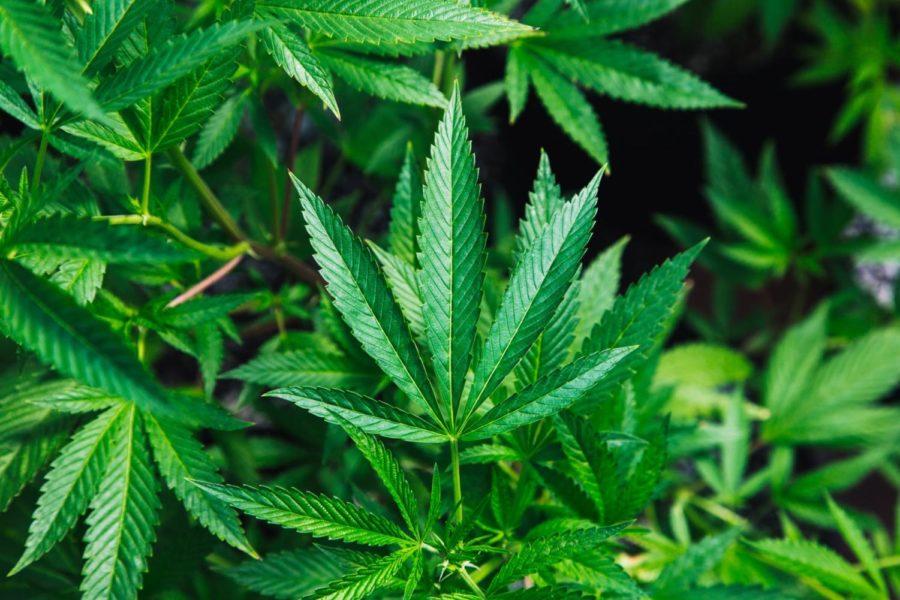Editorial: Opioids or cannabis?
The ISD Editorial Board responds to Sha’Carri Richardson’s recent suspension by arguing all sports leagues should allow athletes to use cannabis and stop testing players for THC.
July 11, 2021
Editor’s Note: Editorials are representative of the views of all five Editorial Board members. One or two members will compile these views and write an editorial.
On July 2, the top women’s Olympic 100-meter dash runner in the entire United States, Sha’Carri Richardson, was suspended from Team USA after a drug test revealed she had traces of THC, the chemical in cannabis, in her system. Later, she was left out of the running for the 4×100-meter relay, a race she could have previously competed in after her one-month suspension had been served.
Richardson’s suspension drew plenty of criticism from a nation that has recently become much more open to the legalization of marijuana. In a country where 18 states have legalized recreational marijuana, including the state Richardson was tested in, many feel the rules governing athletes and marijuana use are out of date and inconsistent with the science behind the drug.
Currently, in the United States, all major sports leagues do not allow the use of cannabis. Players in the NFL, MLB, NHL and NBA all undergo some form of drug testing, some more rigorously than others. Despite these rules, however, 82 percent of teams in these leagues are in states where players can legally buy either medicinal marijuana or recreational marijuana.
Recently, the NFL renegotiated the testing rules with the National Football League Players Association, greatly reducing the number of tests players would be required to take. MLB only tests if there is “reasonable cause,” and the NHL does not automatically punish players, instead offering an optional drug treatment program that keeps the players’ name private if there are no previous violations. However, most athletes face shame, fines and suspension for failing a drug test.
Some former athletes, such as Brian Shaw and Al Harrington, have publicly advocated for the sporting world to reevaluate their view of the plant. They claim marijuana can have great medical benefits for athletes that put their body through daily strain and damage. In 2017, Harrington was even able to get former NBA commissioner David Stern to agree that marijuana should be removed from the banned substances list.
While research on the medical benefits of marijuana can be difficult to conduct because of the legal restriction surrounding the schedule one drug, it is widely accepted that the plant’s properties can help treat and lessen severe and chronic pain.
If allowed, medical marijuana could be a quality alternative for addictive opioid painkillers that currently are a necessity for many current and former athletes. A study conducted by ESPN found significant opioid misuse and abuse in NFL players who sought pain relief and became addicted after retirement. This can be avoided.
Banning a drug that could provide non-addictive pain relief purely because of outdated stereotypes while continuing to funnel athletes into opioid addictions has serious ethical implications. What is the logic in taking the option away from players? Why make players choose between chronic pain and highly addictive drugs?
This is not to say that marijuana is a miraculous drug. Like any substance, it can be abused and cause unwanted side effects if used improperly. It also doesn’t work for everyone. But the same can be said for many substances with similar or arguably lesser impacts than marijuana. If a league is seriously concerned about substance abuse, why would they allow alcohol, a substance that causes incredibly well-documented damage to the body and can become addictive to the point of harming the player — thereby impacting their ability to play?
The continued ban of marijuana in sports leagues does little to protect players and does more to funnel athletes to addictive opioids. At most, the ban preserves the image of the league in the eyes of some fans that still oppose the legalization of the drug. These fans are few and far between, however, and the sporting world needs to catch up with the rest of society. Catering to some fans without providing real, clear evidence that the drug overwhelmingly harms players compared to the other acceptable drugs is a shaky justification of the ban that the sporting world needs to seriously reconsider.

















